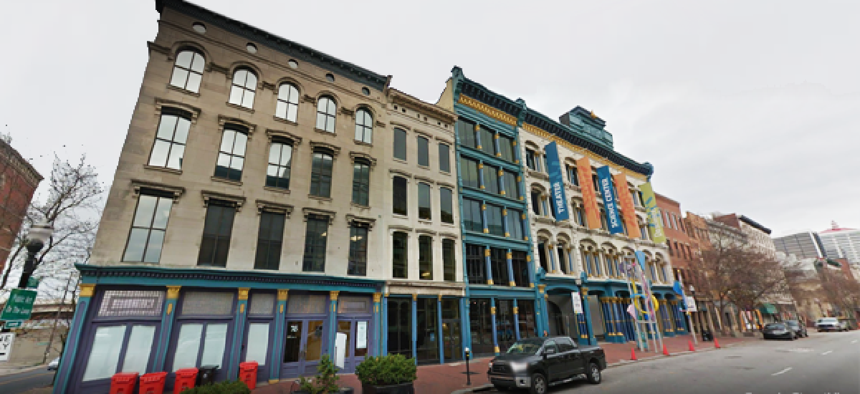LouieLab: An innovation hub for a smarter Louisville


Connecting state and local government leaders
LouieLab is a public-private collaborative coworking space designed to promote and build smart city projects.
Smart city initiatives are proliferating at a blistering pace. Newark, N.J., Washington, D.C., Pittsburgh and now Louisville, Ky., are all part of the growing wave of cities testing technology to improve residents’ quality of life, save money and improve operations.
Officially opened Dec. 12, the LouieLab is a public-private collaborative coworking space designed to promote and build smart city projects.
Connecting the smart city to the smart home is one of LouieLab’s goals. At the opening, Grace Simrall, the organization's chief of innovation, demonstrated how Alexa, Amazon’s virtual assistant, can be used to query the city’s 311 information, taking open data to the next level.
LouisLab volunteers built an interface to programmable light bulbs that turn yellow to warn allergy sufferers during high pollen days and flash red during a tornado warning, Dave Mattingly, a Louisville tech advocate, wrote in his blog.
Also demoed at the opening was the Completely Autonomous Solar Powered Event Responder. CASPAR is a smart smoke detector that uses a microphone to listen for the standard smoke alarm frequencies and makes a wireless call to alert neighbors and emergency services of potential danger via SMS and phone messages. The solar-powered unit can stay powered with a few minutes of direct sunlight each day.
The city has a reputation for tech tinkering.
The Air Louisville program uses smart connected inhalers that track when, where and how often asthma patients use their inhalers. The information can not only help patients manage their symptoms, but it collects data about the location and severity of pollution based on inhaler use.
Although the city has tackled tech challenges with weekend projects, the LouieLab will give the tech community “a sustained opportunity to work with the Innovation Advisory Council in coming up with very targeted solutions to solving our citizen’s problems,” Simrall said.
“Louisville is leading the trend of smart cities — communities that are embracing technology and data to better the quality of life of their citizens,” the city’s former chief innovation officer Ted Smith, said when the lab was announced. “LouieLab brings those goals to life, giving government and citizen civic hackers a place to build off each other’s ideas to create truly innovative and effective solutions for our city.”
The LoiusLab is housed in same building as the CNET smart apartment, the online news source’s initiative to showcase and test examples of smart home technology that’s easy to install and landlord friendly. It features commercially available virtual assistants to control lighting, security cameras and video doorbells. Technology developed at LouisLab will be tested in the smart apartment, Simrall said.
"There's going to be an opportunity for us to have true demonstrations of what the nexus between smart city and smart home will be," she said.
According to experts at Smart America, a White House Presidential Innovation Fellows project, city governments will invest approximately $41 trillion over the next 20 years in smart city projects.
"Smart cities is not a fad. It's not going away," said Alan Shark, executive director of the Public Technology Institute told CNBC. “Business leaders should be asking themselves now, 'What is our smart-city strategy?'"

NEXT STORY: Draining More Than 1,000 Swamps in D.C. and Beyond the Beltway




